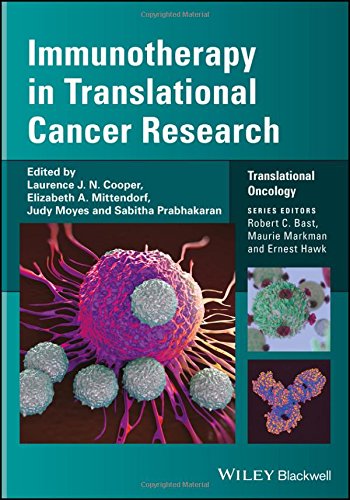

Most ebook files are in PDF format, so you can easily read them using various software such as Foxit Reader or directly on the Google Chrome browser.
Some ebook files are released by publishers in other formats such as .awz, .mobi, .epub, .fb2, etc. You may need to install specific software to read these formats on mobile/PC, such as Calibre.
Please read the tutorial at this link: https://ebookbell.com/faq
We offer FREE conversion to the popular formats you request; however, this may take some time. Therefore, right after payment, please email us, and we will try to provide the service as quickly as possible.
For some exceptional file formats or broken links (if any), please refrain from opening any disputes. Instead, email us first, and we will try to assist within a maximum of 6 hours.
EbookBell Team

5.0
68 reviewsA guide to state-of-the-art cancer immunotherapy in translational cancer research
A volume in the Translational Oncology series, Immunotherapy in Translational Cancer Research explores the recent developments in the role that immunotherapy plays in the treatment of a wide range of cancers. The editors present key concepts, illustrative examples, and suggest alternative strategies in order to achieve individualized targeted therapy. Comprehensive in scope, Immunotherapy in Translational Cancer Research reviews the relevant history, current state, and the future of burgeoning cancer-fighting therapies. The book also includes critical information on drug development, clinical trials, and governmental resources and regulatory issues.
Each chapter is created to feature: development of the immunotherapy; challenges that have been overcome in order to scale up and undertake clinical trials; and clinical experience and application of research. This authoritative volume is edited by a team of noted experts from MD Anderson Cancer Center, the world’s foremost cancer research and care center and:
Designed for physicians, medical students, scientists, pharmaceutical executives, public health and public policy government leaders and community oncologists, this essential resource offers a guide to the bidirectional interaction between laboratory and clinic immunotherapy cancer research.